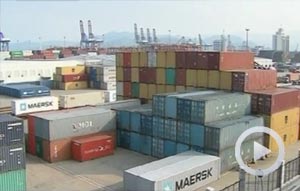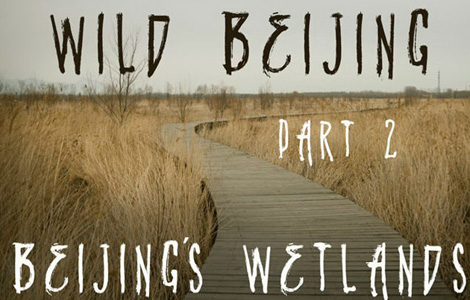War for wildlife in the wilderness
Updated: 2013-07-05 14:01
By Edoardo Gagliardi (China Daily)
|
||||||||
Films tell of the desperate battle to save the Tibetan antelope
Director: Lu Chuan (陆川)
Writer: Lu Chuan (陆川)
Producer: Du Yang (杜扬)
Wang Zhonglei (王中磊)
Kekexili (可可西里, or Hoh Xil in Tibetan), "the last untouched wilderness in China", is a vast stretch of land connecting Tibet with Xinjiang and Qinghai at an exceptional altitude; its average elevation is a whopping 4,800 meters.
While the area's harsh natural conditions are now and then a nightmare for unprepared hikers this land in the heavens is home to more than 200 species. Among them is the endangered Tibetan antelope (藏羚羊 zàng língyáng, chiru in Tibetan), which is down to a population of about 75,000, according to a 2008 survey. In director Lu Chuan's 2004 film, Kekexili: Mountain Patrol, these antelopes, a common target for poachers, are the stars.
Mountain Patrol tells the true story of Zhawa Dorje and his Wild Yak Brigade, a volunteer patrol made up of civilians. In the mid-90s, they were striving to protect the Tibetan antelopes, whose pelts were considered among the finest wool in the world. Since the 1980s, these antelopes have been all but wiped out by poachers to satisfy the demand of lucrative foreign markets.
The volunteers consist of brave young men who put themselves in dangerous situations while following their leader Ritai (日泰), a retired Tibetan army officer, in their paramount task of saving the antelopes and the essence of Ritai's heritage with them. Without the antelopes, which were once so numerous in their native land, Kekexili just wouldn't be the same to these men.
Ritai and a member of the patrol speak passionately about the allure of Kekexili:
"Do you know what ‘Kekexili' means in Tibetan? It means beautiful mountains. And girls."
你知道可可西里是什么意思吗?可可西里在我们藏语中是美丽的青山, 美丽的少女。
Nǐ zhīdào kěkěxīlǐ shì shénme yìsi ma? Kěkěxīlǐ zài wǒmen zàngyu zhōng shì měilì de qīngshān, měilì de shàonǚ.
"And each step taken in Kekexili may be the first human footprint ever made in that spot since the world began."
就是在可可西里,你踩下的每一个脚印,有可能是地球诞生以来人类留下的第一个脚印。
Jiùshì zài kěkěxīlǐ, nǐ cǎixià de měi yí gè jiǎoyìn, yǒu kěnéng shì dìqiú dànshēng yǐlái rénlèi liúxià de dìyīgè jiǎoyìn.
In the opening scenes, the patrol fights a cutthroat battle with poachers, their efforts made more difficult by an environment in which snowstorms, quicksand and hunger can kill faster than rifles. Luck is against them, and Mountain Patrol begins with the murder of a patrolman.
A young Tibetan reporter, Ga Yu (尕玉), is sent from Beijng to cover the crime and soon finds himself on the front lines with Ritai and his men as they seek retaliation against their friend's killers and strive to bring an end to the antelope slaughter once and for all.
Days pass in the vast no man's land before the patrol arrests a small group of accomplice left behind by the gunmen it seeks. The prisoners are forced to join in Ritai's pursuit, and during the journey, a surprising event occurs: The captors discover they share a bond with their enemy. Both sides' lives in the mountains are hard, with little money, few resources and no way out.
Prisoner: "I skinned the animal."
我是剥皮子的。
Wǒ shì bāo pízi de.
Patrolman: "How much do they pay you?"
剥一张皮子给你多少钱啊?
Bāo yì zhāng pízi gěinǐ duōshao qián a?
Prisoner: "Five yuan for each pelt; I'm the fastest skinner in Ge'ermu. All my children are here, too - they're all skinners. Years ago, I was a shepherd, but now the grasslands have turned to desert. The sheep and cattle are all gone-dead or sold off. It's tough to survive here."
给我五块钱。我在这个格尔木啊,这个剥皮子,我是最快的人。孩子们都在这个地方啊。他们都在剥皮子。以前我是放牧的啊。这个草丛变成这个沙滩了,牛啊样啊没有吃的,死的死了,卖的卖了,现在人也没有吃的,所以人也活不下去了。
Gěi wǒ wǔ kuài qián. Wǒ zài zhège Gē'ěmù a, zhège bāo pízi, wǒ shì zuì kuài de rén. Háizimen dōu zài zhège dìfang a. Tāmen dōu zài bāo pízi. Yǐqián wǒ shì fàngmù de a. Zhège cǎocóng biànchéng zhège shātān le, niú a yáng a méiyǒu chīde, sǐ de sǐ le, mài de mài le, xiànzài rén yě méiyǒu chīde, suǒyǐ rén yě huó bú xiàqu le.
"Tough" is an understatement, given Kekexili's seemingly infinite horizons and the emptiness of its landscape. Director Lu's authentic visual portrayal of the countryside comprises one of the movie's most stunning features.
It's an aesthetic approach rendering a new image of Tibet, worlds away from the stereotypical, shallow and spiritually focused imagery captured in other films and media. Mountain Patrol reveals man's sense of loss in the wild, a vast jail without walls.
A place like this will drive men to do almost anything to survive, even if it means, for Ritai and his patrol, compromising their quest.
In a fit of desperation, Ritai falls into a dramatic dialogue summarizing the moral dilemma that is the subtext of the movie and a prelude to its tragic ending:
Ritai: "We're short of money, short of men, short of guns. My guys haven't been paid for almost a year."
钱也没有,人也没有,枪也没有。我的兄弟们一年没工资了。
Qián yě méiyǒu, rén yě méiyoǔ, qiāng yě méiyoǔ. Wǒ de xiōngdimen yì nián méi gōngzī le.
Ga Yu: "Can't the county help?"
县里不能解决经费问题吗?
Xiàn lǐ bùnéng jiějué jīngfèi wèntí ma?
Ritai: "We're not officially employed."
我们没有编制。
Wǒmen méiyǒu biānzhì.
Ga Yu: "How do you pay for the patrol?"
队里的经费是不是特别紧张?
Duì lǐ de jīngfèi shì bú shì tèbié jǐnzhāng?
Ritai: "We have to come up with the money ourselves."
都是我们自己解决
Dōushì wǒmen zìjǐ jiějué.
Ga Yu: "What do you do with the pelts? Do you sell some to raise money? Selling antelope pelts is illegal. How am I supposed to write my article?"
那你们怎么处理缴获来的皮子?你们会不会卖一部分皮子来解决经费问题?可是卖皮子是违法的,你说我该怎么写这篇报道?
Nà nǐmen zěnme chǔlǐ jiǎohuò laí de pízi? Nǐmen huì bú huì mài yí bùfen lái jiějué jīngfèi wèntí? Kěshì mài pízi shì wěifǎ de, nǐ shuō wǒ gāi zěnme xiě zhè piān bàodào?
Ritai: "I know you're a reporter. Do you think Kekexili is protected by you reporters? I'll go to prison if I have to. I know selling pelts is illegal, but I can't worry about that now. I only worry about Kekexili and my men. Ever seen pilgrims prostrating themselves? Their faces and hands are filthy, but their hearts are pure. I have sold pelts before. I had no choice."
我知道你是记者。这可可西里就你们记者保护着吗?我日泰可以进监狱。我知道卖皮子是犯法的,但我现在不会考虑你说的这些, 我只考虑可可西里,考虑兄弟们。见过磕长头的吗?他们的手和脸脏得很,可他们的心特别干净。我卖过皮子,可我没办法。
Wǒ zhīdào nǐ shì jìzhě. Zhè kěkěxīlǐ jiù nǐmen jìzhě bǎohùzhe ma? Wǒ Rìtài kěyǐ jìn jiānyù. Wǒ zhīdào mài pízi shì fànfǎ de, kě wǒ xiànzài búhuì kǎolǜ nǐ shuō de zhèxiē, wǒ zhǐ kǎolǜ kěkěxīlǐ, kǎolǜ xiōngdimen. Jiànguo kē chángtóu de ma? Tāmen de shǒu hé liǎn zāng de hěn, kě tāmen de xīn tèbié gānjìng. Wǒ màiguo pízi, kě wǒ méi bàn-fǎ.
In Ga Yu's presence, Ritai and his men make a sacrifice that ultimately leads to the safety of the antelopes and the protection of the mountain, making them unsung heroes in the region.
The release of Mountain Patrol marked a significant page in China's recent film history. It received positive reception both inside and outside China and has drawn government support to the Kekexili region, even influencing the decision to create an official Tibetan antelope mascot for the 2008 Summer Olympics. Co-produced by the Huayi Brothers from Guangzhou and Columbia Pictures, Mountain Patrol is an example of how a young director benefited from solid, yet innovative production that is as mature as its subject matter.
Courtesy of The World of Chinese, www.theworldofchinese.com
The World of Chinese
(China Daily USA 07/05/2013 page7)

 Joey Chestnut wins 7th contest with 69 dogs
Joey Chestnut wins 7th contest with 69 dogs
 Lisicki, Bartoli to vie for new Wimbledon crown
Lisicki, Bartoli to vie for new Wimbledon crown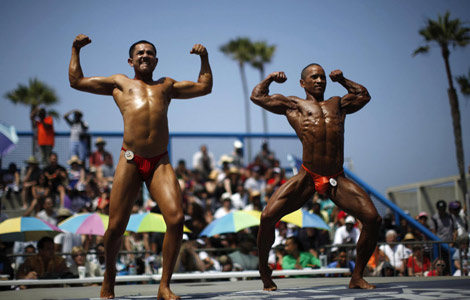
 Muscle Beach Independence Day
Muscle Beach Independence Day
 Tough workout for Li Na in war of words
Tough workout for Li Na in war of words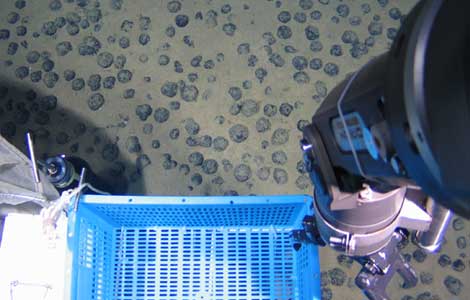
 Submersible taps mineral deposits in S China Sea
Submersible taps mineral deposits in S China Sea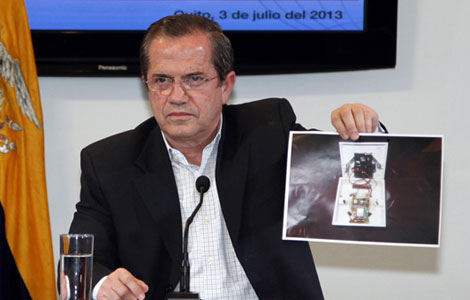
 Ecuador finds spy mic for Assange meeting
Ecuador finds spy mic for Assange meeting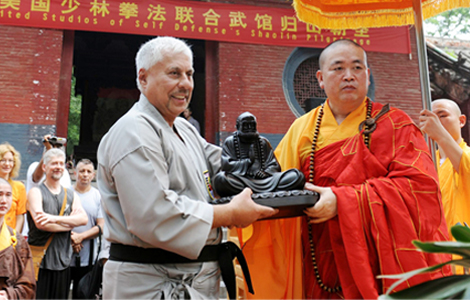
 US martial artists arrive at Shaolin Temple
US martial artists arrive at Shaolin Temple
 July 4 in Prescott: Balance of grief, patriotism
July 4 in Prescott: Balance of grief, patriotism
Most Viewed
Editor's Picks

|

|

|

|

|

|
Today's Top News
Baby formula price probe to shake or reshape industry?
Passenger detained over bomb hoax in NE China
High rent to bite foreign firms in China
Egypt's prosecution imposes travel ban on Morsi
Russia more impatient over Snowden's stay
Mandela still 'critical but stable'
Figures show shifts in US, China economies
Chinese electrician killed in Cambodia
US Weekly

|

|
